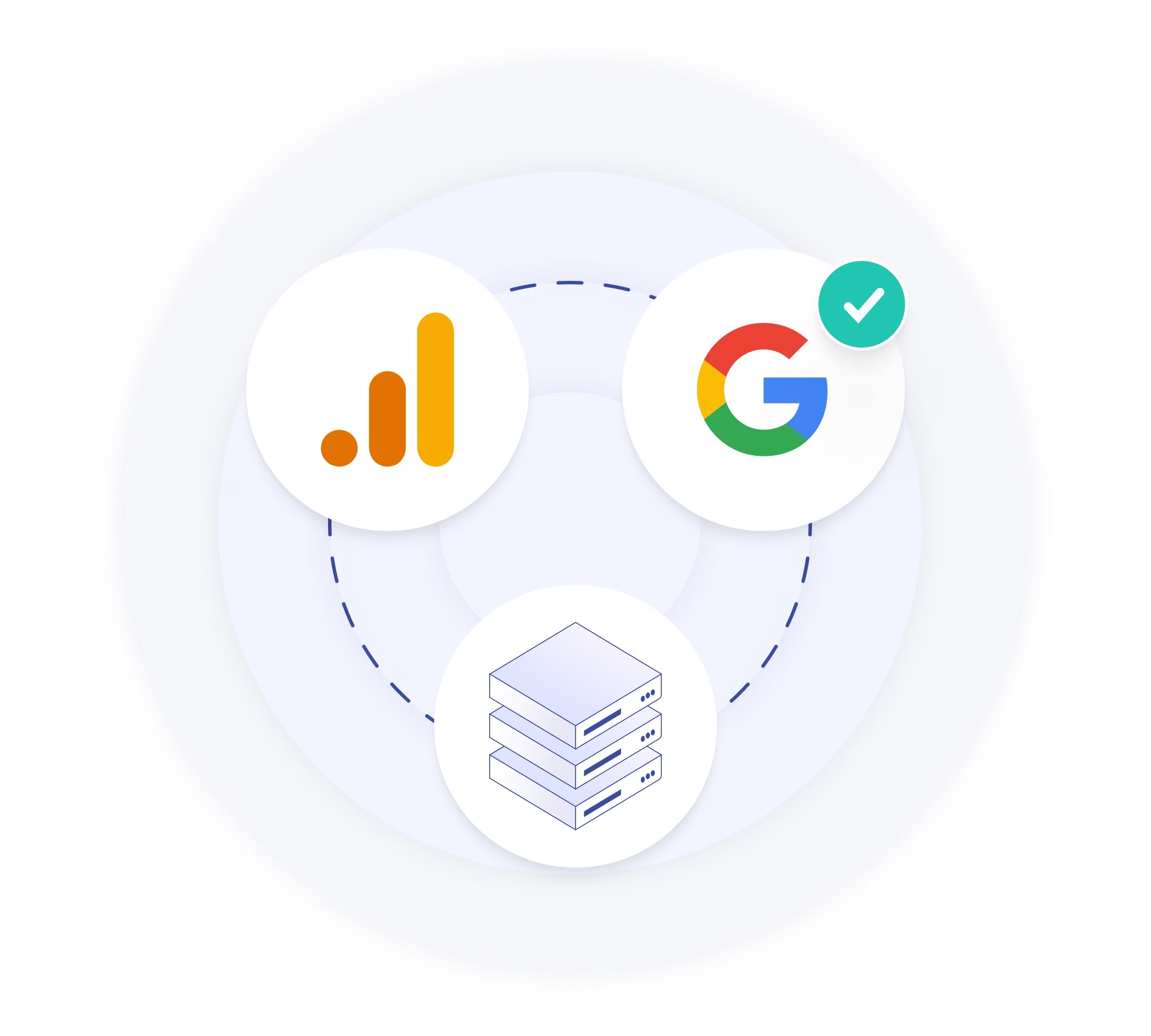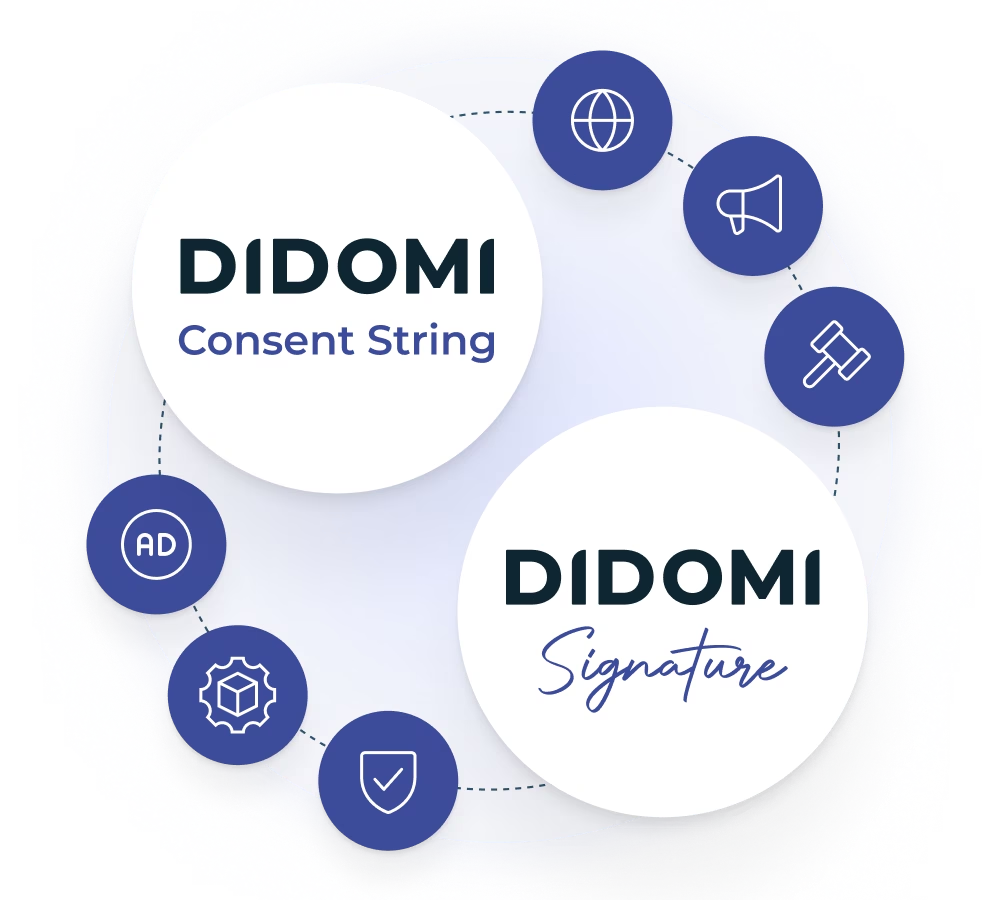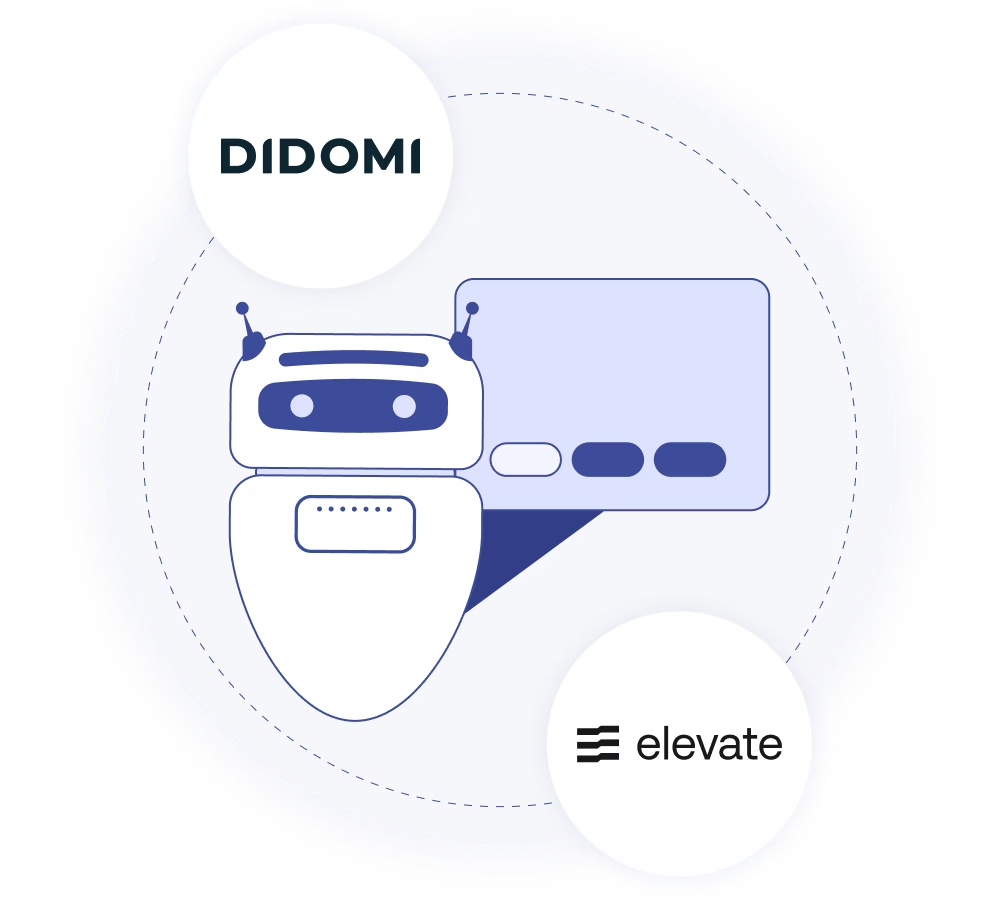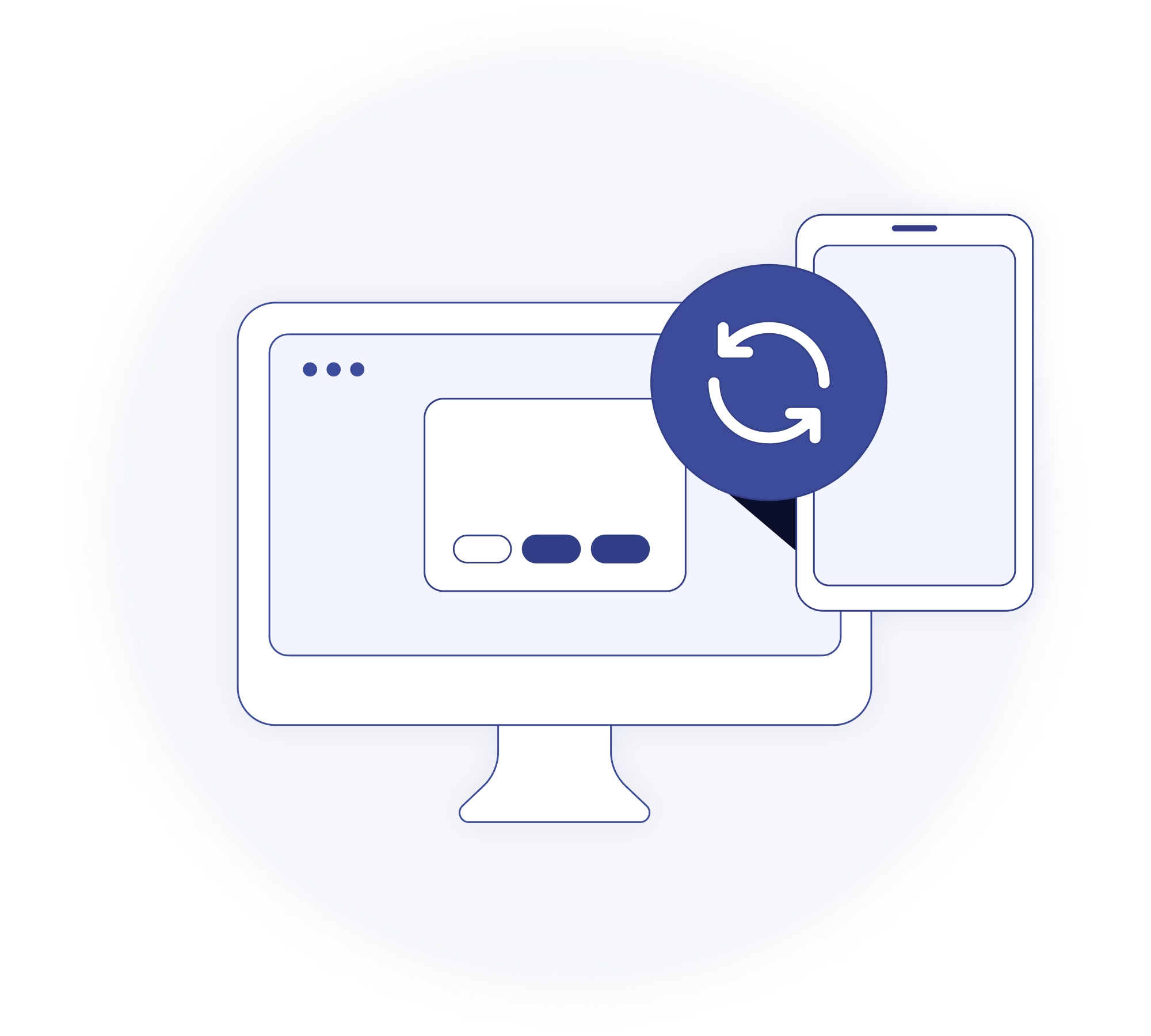In 2016, the European Union (EU) introduced the General Data Protection Regulation (GDPR), enhancing the control and rights of European consumers over their personal data. Most notably, and alongside the e-privacy directive, the new regulation imposed requires organizations processing personal data in the EU to obtain consent from their users.
This can be done using a consent banner (also called a cookie banner), an interface that informs users of the type of personal data collected on a website, for what purpose, and with whom it will be shared, and asks them for permission to proceed.
These consent banners have since become a mainstay online, particularly in Europe but also globally, as new regulations inspired by the GDPR are regularly introduced all over the world.
In this article, we go over what a Consent Management Platform (CMP) is and how to pick the right one for your specific needs before taking a closer look at 10 of the leading CMPs you can choose from.
What is a Consent Management Platform (CMP)?
A consent management platform is a software solution that allows organizations to:
- Provide consent banners to inform users about what data is collected, which specific entities process the data, why, under which legal basis, and other legal requirements required by various privacy regulations.
- Offer a dashboard for users to grant, refuse, or revoke consent.
- Create and share granular consent records with entities relying on CMP data, such as advertising and publishing partners, to enable and demonstrate lawful data processing.
Simply put, a CMP is a technology that helps companies legally collect and store user consent and then leverage that consent through their tech stack in compliance with data privacy regulations.
Our CEO and co-founder, Romain Gauthier, explains it in simple terms:
"A Consent Management Platform (CMP) is a key component of any comprehensive data privacy strategy. Not only is it mandatory to implement a consent banner under a number of data protection laws worldwide, but a CMP allows organizations to ensure that the choices collected from users are stored and leveraged in a compliant way in case of an audit.
One of the critical yet complex aspects of a CMP is distributing the consent status to a wide range of systems and vendors that critically need this signal to perform their tasks. Most importantly, it communicates to your customers that you care about their privacy and value their trust."
- Romain Gauthier, Co-founder and CEO at Didomi
By transparently communicating with users what data they collect, for what purpose, and why, companies can showcase their commitment to data privacy and build a trusting relationship with their customers.
How does a Consent Management Platform work?
A CMP helps organizations collect, store, and manage user consent in compliance with privacy laws like GDPR or CCPA/CPRA. Here's how it works:

In simple terms and at the highest level, a functioning CMP will help you in 5 key ways:
- Designing your consent banner: The process starts with creating a consent banner tailored to your website or app’s needs. A CMP provides customizable templates, allowing you to align the banner’s look, feel, and messaging with your brand. You can configure the banner to offer clear options, such as "Accept All," "Reject All," or granular preferences.
- Collecting user choices: When users interact with your banner, the CMP captures their consent preferences in real-time. These choices, whether full acceptance, rejection, or customized, are recorded in compliance with regulations like GDPR or CCPA/CPRA, by handling granular consent for specific vendors and purposes.
- Enforcing consent settings: Once preferences are set, the CMP ensures they are respected by controlling which cookies or tracking technologies can run on your site, integrating with tag management solutions to control data collection technologies. This guarantees compliance and reduces the risk of unauthorized data collection.
- Managing preferences: The CMP enables you to offer users ongoing control. Through an accessible link to manage choices, users can revisit and adjust their consent settings whenever they choose.
- Generating compliance reports: A CMP provides detailed logs of user interactions with the consent banner, ensuring you have an auditable compliance record. These reports can be critical during regulatory reviews or audits.
Learn more on our dedicated CMP page:
{{learn-more-about-our-cmp-solution}}
Top 10 best Consent Management Platforms (CMP) for your business
Now that you're familiar with what a CMP is and what some of the key requirements you should look out for, let's review some of the best Consent Management Platforms (CMP) on the market, examining their unique features, pros, and cons.
Didomi: Multi-regulation consent management for global organizations

The Didomi CMP stands out as a leading solution in the industry thanks to our strong focus on user experience, extensive customization options, and robust regulatory compliance.
Our Google-certifiedConsent Management Platform is a good fit for businesses of all sizes, particularly for global enterprises needing the necessary solutions to navigate regulations like GDPR, CCPA, and other global privacy laws. It is well-equipped to meet the demands of privacy-conscious organizations, enabling seamless consent and preference management at scale.
Average review scores from clients:
- G2: 4.6/5 (134 reviews)
- Capterra: 4.5/5 (14 reviews)
- Sourceforge: 4.9/5 (10 reviews)
Pros:
- Multi-regulation compliance: Didomi supports GDPR, CPRA, and other global regulations, ensuring your organization stays compliant worldwide.
- User-friendly platform: Several confirmed customers have commented on the Didomi CMP being user-friendly, allowing for simple advanced customization.
- Customizable consent banners: Our CMP lets you personalize your banners to fit your brand aesthetics and regulatory needs, thanks to easy-to-use customization tools.
- Integration-friendly: Didomi works with your existing stack, including popular CRMs, analytics platforms, and marketing tools.
- Comprehensive reporting: Our advanced analytics and reporting options make it easy to track consent rates, identify trends, and make data-driven improvements.
- Customer support: Our customer support department has been recognized as particularly efficient and helpful by our customers.
- Privacy expertise: Our team of data privacy professionals can assist our customers in their most complex challenges and provide industry-leading insights, such as our yearly consent benchmark, which online reviews have highlighted as essential.
- Custom implementation: Beyond straightforward consent management, we offer advanced use cases for teams that want to create custom setups, such as managing consent within a server-to-server architecture.
Cons:
- Premium solution: Our comprehensive multi-regulation CMP might be too advanced and/or expensive for organizations looking for a entry-level, basic banner.
- No self-service: Due to the advanced nature of our solutions, we require prospective customers to contact our team before committing, in order to discuss their challenges and ensure an actual problem/solution fit together.
Best for:
Didomi is great fit for global enterprises requiring a multi-regulation CMP with advanced customization and cross-device functionality for consent management at scale.
To discuss your data privacy and consent management challenges, get in touch with our team:
{{talk-to-an-expert}}
OneTrust: AI and data platform for complex ecosystems

OneTrust was one of the first entrants in the Consent Management Platforms (CMP) market and has grown into a leading player with solutions covering several regulations globally.
Nowadays, the OneTrust platform extends beyond CMP with a comprehensive suite of solutions for privacy, security, data governance, and compliance, and the organization has acquired several other companies to reflect this ambition.
Average review scores from clients:
- G2: 4.3/5 (147 reviews)
- Capterra: 4.2/5 (31 reviews)
- Sourceforge: 5/5 (1 review)
Pros:
- Longevity: Onetrust is a legacy player in the CMP field, with an extensive client portfolio that includes Fortune 500 companies.
- Breadth of products: Comprehensive suite of solutions, including privacy, security, ethics, and compliance.
- Artificial intelligence: AI features embedded in the platform.
Cons:
- Platform complexity: Some clients have reported issues implementing the solution.
- Lackluster reporting: Online reviewers have described the reporting features of the platform as only offering basic functionalities.
- Expensive plans: OneTrust pricing is not publicly available but has been reported to be on the higher side.
- Customer support issues: Some customers have complained online about the quality of support they received from OneTrust when facing issues with the platform.
Best for:
Large enterprises with complex data ecosystems looking for a platform that combines consent management with broader data governance, privacy, and AI tools.
Usercentrics: A CMP with global reach for marketers

Usercentrics is a CMP provider that combines global compliance with customizable tools. Following their acquisition of competitor Cookiebot, the platform enhances automation but remains primarily focused on consent management.
Average review scores from clients:
- G2: 4.5/5 (99 reviews)
- Capterra: 4.3/5 (8 reviews)
- Sourceforge: -/5 (no reviews)
Pros:
- Global reach: Usercentrics is active in more than 150 countries, with partners globally.
- Flexible implementation: Reviews report that consent banners can be heavily customized to fit your brand identity and that the tool is easy to set up.
Cons:
- High costs for small businesses: Some reviews have called the solution expensive for smaller companies.
- Backend complexity: Online reviewers have reported facing difficulties with the complexity of the solution, particularly with the backend settings.
- Documentation gaps: The documentation has been reported as not consistently the best.
Best for:
Companies needing global compliance and customizable banners, though smaller businesses may face cost and complexity challenges.
Axeptio: User-friendly and fun consent management

Axeptio is a French CMP provider with a strong brand and focus on user experience, offering SMBs an affordable way to implement a consent banner quickly.
Average review scores from clients:
- G2: 4.4/5 (6 reviews)
- Capterra: 4.9/5 (12 reviews)
- Sourceforge: -/5 (no reviews)
Pros:
- Design-first approach: Stands out for its visually appealing banners that drive engagement and are generally appreciated by customers for their humor.
- Affordable pricing: Axeptio offers a free plan and paid options starting at $29/month.
Cons:
- Lower plan limitations: While the most affordable plans are convenient, users have reported finding them limiting in terms of functionalities.
- Customization difficulty: Despite the overall ease of use of the tool, some users have expressed facing problems when trying to customize their banners, add more languages, and navigate the back office.
- U.S. laws coverage: Axeptio's website indicates compliance with regulations like the California Consumer Privacy Act (CCPA), but specific details about its adherence to other U.S. state laws are not explicitly provided.
Best for:
Small to medium-sized businesses seeking visually engaging consent banners with affordable pricing and quick implementation.
Osano: A compliance-first approach to data privacy

Based in the United States, Osano offers a compliance-driven CMP with tools tailored for smaller organizations, including cookie scanning and monitoring capabilities.
Average review scores from clients:
- G2: 4.6/5 (110 reviews)
- Capterra: -/5 (no reviews)
- Sourceforge: -/5 (no reviews)
Pros:
- Easy to use: Most user reviews express satisfaction with the ease of use and implementation of the platform.
- Good customer support: Several online reviews highlight the helpfulness of Osano’s customer support team and the quality of the tool’s documentation.
Cons:
- Improvable user interface: Certain confirmed users have criticized Osano’s user interface and user experience.
- Limited customization: Some reviewers have highlighted a lack of flexibility or advanced customization that can be limiting for specific use cases.
- Expensive: Online reviews share that they found the CMP to be expensive and can become particularly costly for websites with a lot of traffic.
Best for:
Smaller businesses prioritizing ease of use and compliance but requiring less advanced customization and scalability options.
Ketch: Privacy automation and compliance at scale

Ketch’s CMP offers a privacy automation platform for larger teams with data governance needs.
Average review scores from clients:
- G2: 4.5/5 (54 reviews)
- Capterra: -/5 (no reviews)
- Sourceforge: -/5 (no reviews)
Pros:
- Customer support: Many online customer reviews express satisfaction with the support team and the onboarding experience.
- Competitive pricing: Customers report being satisfied with the platform pricing.
Cons:
- Steep learning curve for some teams: Online reviewers have reported experiencing a learning curve associated with the platform, specifically its user interface and implementation on mobile.
- Lackluster customization: Several customer testimonials express being underwhelmed by the limited customization capabilities of Ketch CMP.
Best for:
Larger teams needing a privacy automation platform with competitive pricing, though it may require technical expertise for effective implementation.
CookieYes: Quick and effective consent compliance

CookieYes provides a simple, budget-friendly CMP for smaller businesses, emphasizing straightforward, easy-to-implement cookie consent management.
Average review scores from clients:
- G2: 4.8/5 (198 reviews)
- Capterra: 4.8/5 (44 reviews)
- Sourceforge: -/5 (no reviews)
Pros:
- Customer support: Online customer reviews praise the platform’s support, although a minority are critical of the team’s support and response time.
- Free plan: Cookiyess offers a free plan, which is very practical for small businesses not looking to invest in a comprehensive, advanced solution.
Cons:
- Subscription limitations: While a free plan is useful for very small businesses, features are naturally limited (number of page views displaying the consent banner, for example), as reflected by some reviews wishing the free plan capabilities were extended or that added features like removing CookieYes branding were less expensive.
- Limited features: Online reviews express missing certain features, such as more customization options, advanced language management, or team management capabilities within the tool.
Best for:
Small businesses with straightforward cookie compliance needs seeking an entry-level CMP with budget-friendly plans.
Consentmanager: Analytics-driven compliance for diverse regulations

Consentmanager is a European-focused CMP serving mainly small to medium-sized businesses with straightforward consent management needs.
Average review scores from clients:
- G2: 5/5 (1 review)
- Capterra: 4.1/5 (7 reviews)
- Sourceforge: 5/5 (2 reviews)
Pros:
- Ease of setup: Users appreciate the straightforward setup process.
- Responsive support: The platform's customer service is praised for its responsiveness.
Cons:
- Customization limitations: More customization options are desired.
Best for:
Europe-focused SMBs that value a simple setup, though customization options may be limited.
TrustArc: Compliance and governance suite

TrustArc provides a Consent Management Platform (CMP) as part of its broader privacy management suite, aimed at helping organizations navigate complex regulatory requirements.
Average review scores from clients:
- G2: 4.2/5 (262 reviews)
- Capterra: /5 (X reviews)
- Sourceforge: /5 (X reviews)
Pros:
- Straightforward platform: Users appreciate TrustArc's user-friendly interface.
- Customer support: The platform's customer service is praised for its responsiveness and helpfulness.
Cons:
- Lack of guidance and technical knowledge: While the support team is praised in some reviews, others show concerns about the support team's lack of guidance and technical expertise.
- Time-consuming: Even if the platform can be easy to use, some users mention that it is time-consuming to run properly, making it hard to pass the knowledge to other team members.
Best for:
Businesses requiring a user-friendly CMP integrated within a broader privacy management suite, though time investment may be needed for optimal use.
Sourcepoint: Focus on publishers/adtech

Sourcepoint targets publishers with tools for balancing user experience and ad revenue, but it’s not as versatile for other industries.
Average review scores from clients:
- G2: 4.7/5 (33 reviews)
- Capterra: -/5 (no reviews)
- Sourceforge: -/5 (0 reviews)
Pros:
- Knowledgeable and responsive team: Users appreciate the expertise and responsiveness of the Sourcepoint team.
- Flexibility and customization: Users highlight the platform's flexibility and customization options.
Cons:
- Steep learning curve: Some users find the platform requires a certain level of understanding to operate effectively.
Best for:
Publishers balancing user experience with ad revenue, large organizations requiring solutions to solve complex use cases.
Benefits of using a Consent Management Platform
Of course, some organizations might be reluctant to pay for a tool and assume they can build their own CMP in-house. While possible, you should know the challenges associated with such a complex endeavor.
Using a dedicated CMP offers several benefits, including:
- Regulatory compliance: A CMP ensures compliance with privacy laws like GDPR and CPRA by properly collecting, storing, and managing user consent - reducing legal risks and protecting your reputation.
- Enhanced user trust: A CMP helps build trust by giving users control over their data, with transparent consent banners and accessible preference management.
- Optimized consent rates: Well-designed CMPs offer customizable, user-friendly interfaces that increase the likelihood of users opting in, boosting your organization's opt-in performance.
- Comprehensive analytics: CMP users can access detailed insights into consent rates and user preferences, enabling them to refine their privacy strategy with data-driven decisions.
- Streamlined vendor management: CMPs handle the complexities of working with multiple third-party vendors, ensuring consent is respected and compliance is maintained across all partners.
Importantly, established CMPs are part of the larger privacy and digital ecosystems and offer integrations with industry frameworks such as the IAB TCF, and are part of initiatives such as the Google CMP Partner Program.
Next, let’s examine what you must consider when selecting the right CMP for your needs.
How to pick the best CMP for your organization?
There is no universal answer to this question, as selecting a Consent Management Platform (CMP) is a highly strategic decision that will ultimately be specific to your unique organization, expectations, and requirements.
That being said, there are some critical elements you should pay attention to when searching for the right solution for your business:
- Integration with industry standards: The data privacy industry rallies around frameworks and standards that are all but required to maintain functioning consent management operations. Think of the Transparency and Consent Framework (TCF), Google Consent Mode V2, Microsoft UET Consent Mode, and more.
- Compatibility with regulations: While it might sound obvious, you don’t want to overlook the regulatory capabilities of your CMP with the markets in which you operate. Different regulations require different features and technological solutions, and a multi-regulation CMP will ensure you can respect the law wherever they are.
- Implementation complexity: Depending on your setup's specificities, implementing a CMP can be a massive project. It is very important to ensure you can go live with your banner in a satisfactory time frame.
- Integration with your existing tech stack: Once your CMP is live and you start collecting data, you want to be sure you can respect your users’ choices and forward that data to your other services. From your CRM to your Marketing stack, ensure your CMP is up to par with these integrations.
- Software and service quality: Last but not least, and similarly to every business software you’re looking to implement at your organization, you must ensure that your essentials are covered. You don't want any surprises regarding ease of use, interface, quality of customer service, or pricing, for example.
This is only the beginning. Download our buyer's guide for a complete breakdown of everything you need to look out for during your selection process:

Frequently Asked Questions (FAQ)
Can I build my own Consent Management Platform?
Consent management today is much more than a cookie pop-up warning, a consent banner, or legal compliance. It is a process that impacts many stakeholders within an organization, including legal, IT, data, and marketing teams—as well as customers and regulators.
No matter what size or industry your business operates in, you are liable for customer data privacy and for respecting customer choices about data usage. Data privacy compliance issues can result in legal trouble and potentially damage your hard-won brand reputation. Using consent management solutions can help alleviate that risk.
That being said, building your consent management platform with a lot of resources, effort, and time is possible. It's ultimately up to you to decide whether this is worth it for your organization or whether you should partner with experts who can do the heavy lifting for you.
Are there specific requirements and industry standards for Consent Management Platforms?
Various industry standards, including the Transparency and Consent Framework (TCF), can be relied on when making a decision. Google also introduced new Consent Management Platform (CMP) requirements for publishers and developers partners using the company's AdTech solutions to run advertising campaigns in the European Economic Area (EEA) and the United Kingdom (UK). Didomi is proud to be listed as a Google-ceertified gold CMP partner.
Other frameworks you should look into include third-party frameworks like Global Privacy Controls (GPC) and Global Privacy Platform (GPP), which Didomi also integrates with.
How can I migrate to Didomi from another consent management solution?
Even if you've already implemented a different consent management system, be it a different provider, a homemade solution, or an alternative, migrating to Didomi is easy.
Head to our migration page, where we explain the process in detail.
What is a good consent rate for my website?
This is a difficult question, as consent rates vary greatly between industries, countries, and even technical environments.
Thankfully, we gather this information yearly in our consent collection benchmark and even provide an interactive interface for you to crunch numbers on our website. Check it out and see where you stand!
How can I improve the consent rate of my banner?
There are many ways to improve the consent rate of your banner while remaining compliant with relevant data privacy laws and data protection regulations. We recommend starting with:
- Updating the text of your banner to make it more user-friendly and transparent
- Customizing the appearance of your banner to fit with your brand’s visual identity
- Iterating with different consent banner formats to see what works best
- Looking for consent banner examples and inspirations to see how other brands do it
To explore the possibilities even further, book a call with one of our experts to discuss how we can help.
{{talk-to-an-expert}}

.svg)



















